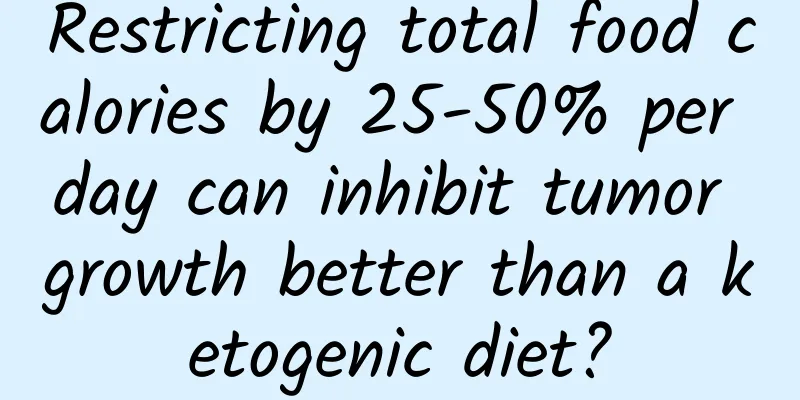Restricting total food calories by 25-50% per day can inhibit tumor growth better than a ketogenic diet?

|
Cells grow on energy, and glucose is the most direct source of energy available to cells. Cancer cells have been found to consume large amounts of glucose, so it was thought that reducing glucose would reduce the amount of glucose available to cancer cells, thus slowing tumor growth. The easiest way to reduce the amount of glucose is to control your diet and design a diet. The most commonly used and popular ones are the ketogenic diet or the calorie-restricted diet. Ketogenic diet (KD) It is a diet with a high fat ratio, a low carbohydrate ratio, and appropriate protein and other nutrients. During a ketogenic diet, the body metabolizes and produces more ketone bodies (including acetoacetate, β-hydroxybutyrate, and acetone) as energy sources. Caloric restriction (CR) diet While providing adequate nutrients such as essential amino acids, vitamins, etc. and ensuring that malnutrition does not occur, limit the total daily calorie intake and reduce the total calorie intake by 25-50%. Can this method really control the growth of cancer cells? Studies have shown that calorie restriction can not only delay tumor growth, but also extend the life of experimental animals. However, there are still differences between these two methods. A recent study found through a pancreatic cancer mouse model that only calorie restriction can inhibit tumor growth, but a ketogenic diet cannot. What is going on? 1. Calorie restriction reduces lipid levels in both plasma and tumors 2. Reduced stearoyl-CoA desaturase (SCD) activity 3. Cancer cells cannot obtain lipids from the diet, and it is difficult for them to produce lipids themselves. 4. Ultimately, it leads to restricted tumor growth. In contrast, the ketogenic diet, although it also reduces SCD activity, increases blood lipid levels. Therefore, cancer cells can obtain enough lipids through diet to grow and divide. In simple terms: Calorie restriction lowers both blood sugar levels and blood lipid levels, while the ketogenic diet only lowers blood sugar levels but increases blood lipid levels. It seems that there is still a great opportunity to control tumor growth through dietary adjustments. Humans can take advantage of this characteristic of cancer cells and inhibit tumor growth by inhibiting the activity of SCD, which may represent a new direction for cancer treatment. Lien, EC, Westermark, AM, Zhang, Y. et al. Low glycaemic diets alter lipid metabolism to influence tumor growth. Nature (2021). doi.org/10.1038/s41586-021-04049-2 |
<<: Who invented the first printer and when?
Recommend
What is the reason for the dull pain in the lower abdomen when the menstruation is delayed for three days?
Delayed menstruation and lower abdominal pain are...
Is it normal to have more vaginal discharge during ovulation?
The female reproductive system is very complex an...
What medicine should elderly women take for frequent nocturia?
Generally, the elderly have more frequent urinati...
How to treat old urethritis
If you have urethritis, you must receive timely a...
What are the early symptoms of uterine fibroids?
Uterine fibroids seriously affect women's rep...
What is the cause of amenorrhea during menstruation?
During menstruation, you must adjust your mental ...
If you want to eat beauty-enhancing and energy-replenishing soup in winter, okay, I’ll introduce it to you!
After living in the city for a long time, our qua...
What is the yellow discharge?
Generally speaking, yellow leucorrhea is a very c...
Is it normal to have a period for a day and a half?
Menstruation is a physiological phenomenon unique...
What should be paid attention to after cutting off the head of Clivia? What fertilizer should be applied to Clivia?
Clivia has green leaves shaped like swords, and c...
How to strengthen the prevention and control of respiratory diseases in winter? How do microorganisms cause and spread diseases? Here comes the authoritative answer →
Winter is the season with the highest incidence o...
Five major functions of stem cells, each of which is crucial
1. Replace and repair damaged and dead cells Stem...
The bleeding came again after 7 days of medical abortion without bleeding
Medical abortion is a relatively effective method...









